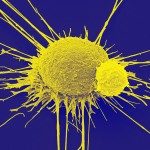Link to Pubmed [PMID] – 25311506
J. Exp. Med. 2014 Oct;211(11):2281-95
T cell receptor (TCR) signals can elicit full activation with acquisition of effector functions or a state of anergy. Here, we ask whether microRNAs affect the interpretation of TCR signaling. We find that Dicer-deficient CD4 T cells fail to correctly discriminate between activating and anergy-inducing stimuli and produce IL-2 in the absence of co-stimulation. Excess IL-2 production by Dicer-deficient CD4 T cells was sufficient to override anergy induction in WT T cells and to restore inducible Foxp3 expression in Il2-deficient CD4 T cells. Phosphorylation of Akt on S473 and of S6 ribosomal protein was increased and sustained in Dicer-deficient CD4 T cells, indicating elevated mTOR activity. The mTOR components Mtor and Rictor were posttranscriptionally deregulated, and the microRNAs Let-7 and miR-16 targeted the Mtor and Rictor mRNAs. Remarkably, returning Mtor and Rictor to normal levels by deleting one allele of Mtor and one allele of Rictor was sufficient to reduce Akt S473 phosphorylation and to reduce co-stimulation-independent IL-2 production in Dicer-deficient CD4 T cells. These results show that microRNAs regulate the expression of mTOR components in T cells, and that this regulation is critical for the modulation of mTOR activity. Hence, microRNAs contribute to the discrimination between T cell activation and anergy.


